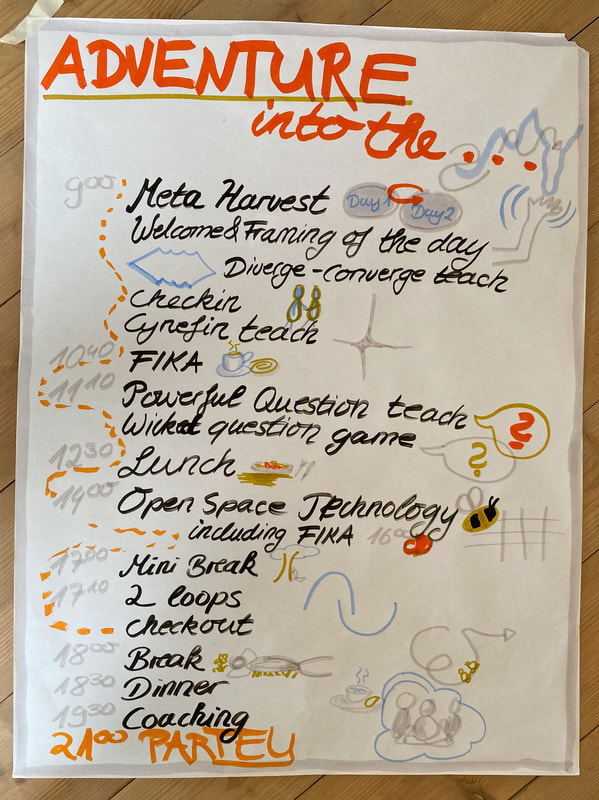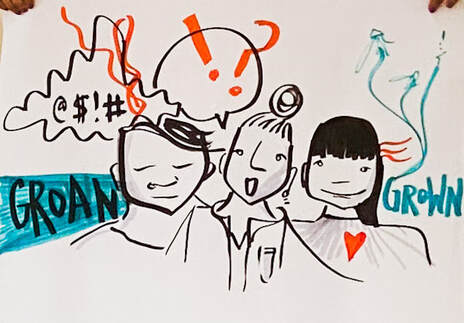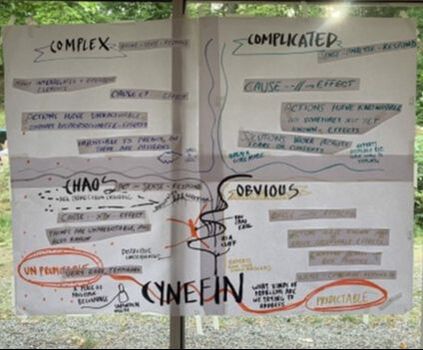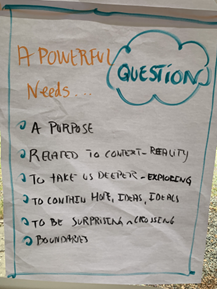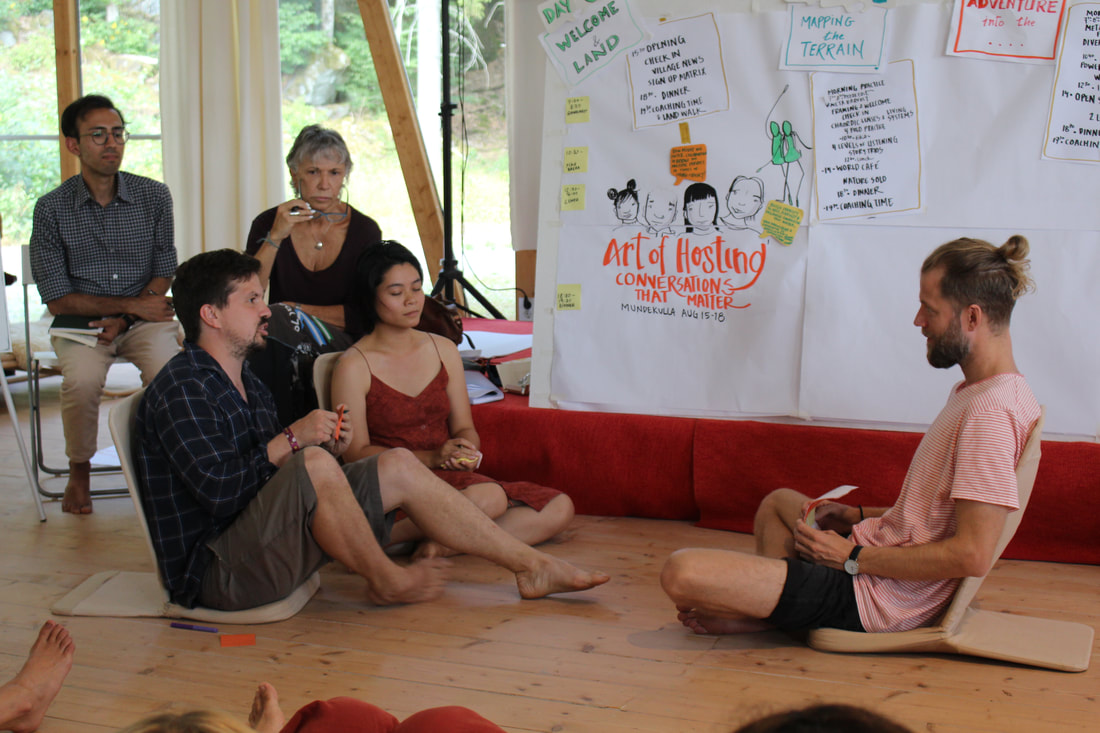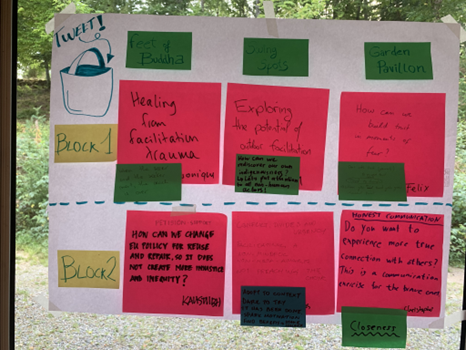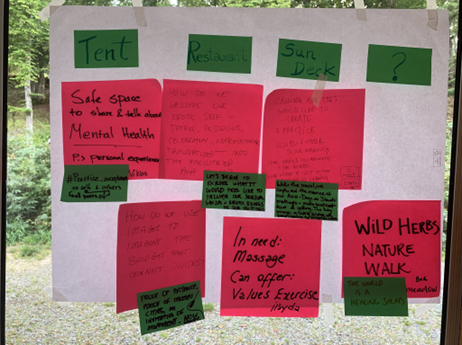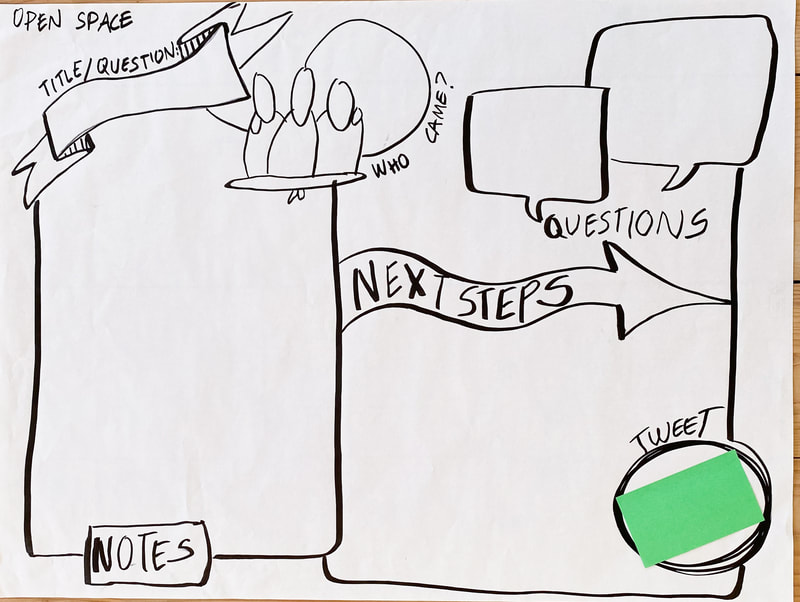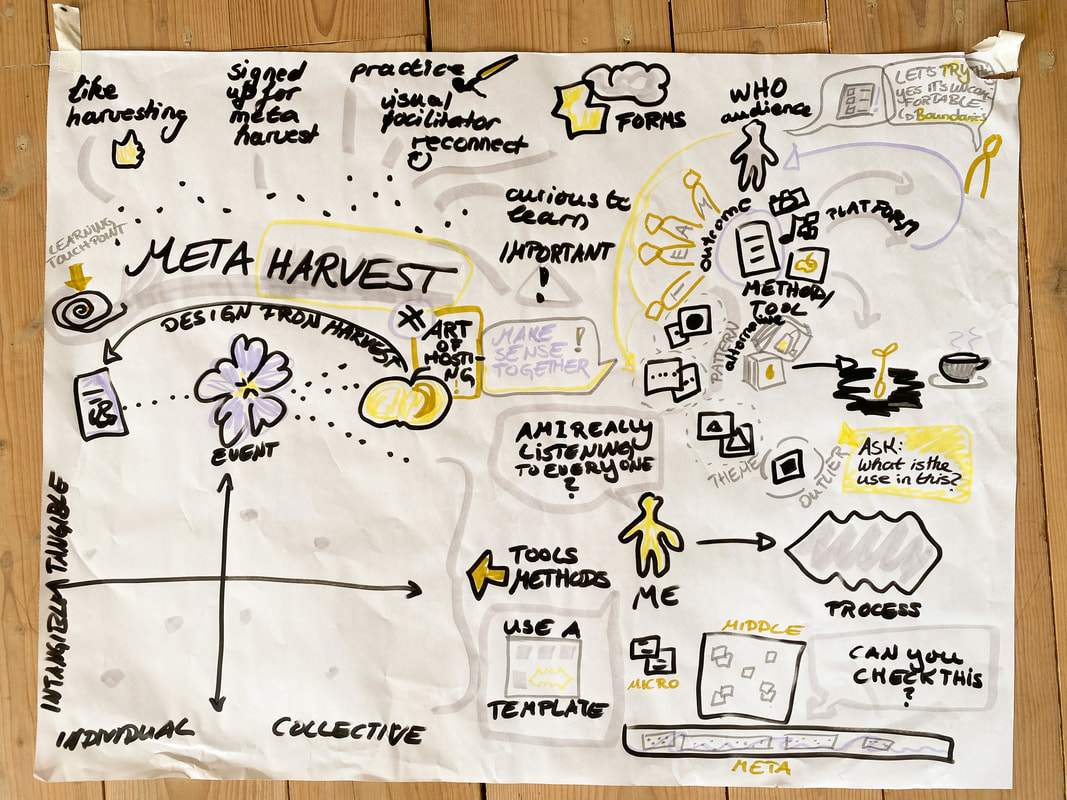Flow
|
Story of Day 2
|
|
The teach about the Cynefin framework from Marco showed us the different actions required in a predictable and unpredictable world. We can only learn about unpredictable systems by intervening in them. This requires participatory leadership. This framework gives us four types of problems. 1. Obvious problems: Linear causality and agreement of best way to solve the problem. 2. Complicated problems: Multiple causes and effects though still linear but maybe delayed, still predictable. Needs spreadsheets and experts to figure out the answer. With adaptations a solution can be transferred to another context. Learning from experience. 3. Complex problems: Even with much information no prediction is possible but afterwards you know why it happened, e.g. lost football match or financial crisis. Multiple root causes and unknowable and unpredictable consequences. World of emergence. No One knows the answer, maybe not even the question. 4. Chaos: No link between cause and effect. Temporarily dangerous, we want to get out there as soon as possible. Rare state.
|
|
Mette presented us the Art of Crafting Powerful Questions. A powerful question needs: A purpose; Related to concept-reality; To take us deeper - exploring; To contain hope ideas, ideals; To be surprising, crossing boundaries, unexpected; simple - looking at the essence. Examples of powerful questions are: What’s behind… ? What is mine to do? What is truly needed now? It is helpful to note that Why… ? questions can cause defense and it might be better to ask: How come… ?. |
|
Fun and new insights emerged with the Wicked Questions Game. Everyone drafted an individual question and was put on the hot seat of their group, to receive questions related to their individual questions from three group members (two active ones sitting and one passive one standing who could tap an active one to change positions). |
After a delicious lunch we went into the Open Space Technology (OST) with the overarching question: What do I need or can offer in order to move forward?
OST brought us both divergence and emergence and unleashed self-organizing capacities within our group by giving everyone the space to invite around a topic. This also showed the high diversity of interests and competences that our group has been holding already.
Principles of Open Space:
• Whoever comes are the right people
• Whenever it starts is the right time
• Whatever happens is the only thing that could have
• When it’s over it’s over !
One of the most powerful components of Open Space Technology is the law of mobility: if you find yourself somewhere where you are neither learning nor contributing, leave and go somewhere where you can.
OST brought us both divergence and emergence and unleashed self-organizing capacities within our group by giving everyone the space to invite around a topic. This also showed the high diversity of interests and competences that our group has been holding already.
Principles of Open Space:
• Whoever comes are the right people
• Whenever it starts is the right time
• Whatever happens is the only thing that could have
• When it’s over it’s over !
One of the most powerful components of Open Space Technology is the law of mobility: if you find yourself somewhere where you are neither learning nor contributing, leave and go somewhere where you can.
After a break we conveyed around the Berkana Two Loops taught by Felix and Charlotte. Represented by branches on the floor we saw the decline of the old system and the emergence of the new one. All the phases are in interconnection with specific roles, such as bridger (between old and new), hospice (to help the old die), conserver (of what to carry from the old to the new), … We explored which roles feel most familiar and how they are connected to each other.
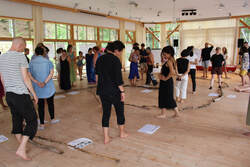
Surprise! Sara and Ilayda prepared a party for us! After dinner and coaching, we started with slow movements naturally flowing into contact improvisation. Later, we had a lot of fun with Turkish, Indish and Celtic dance moves, as well as free dancing and chatting.
